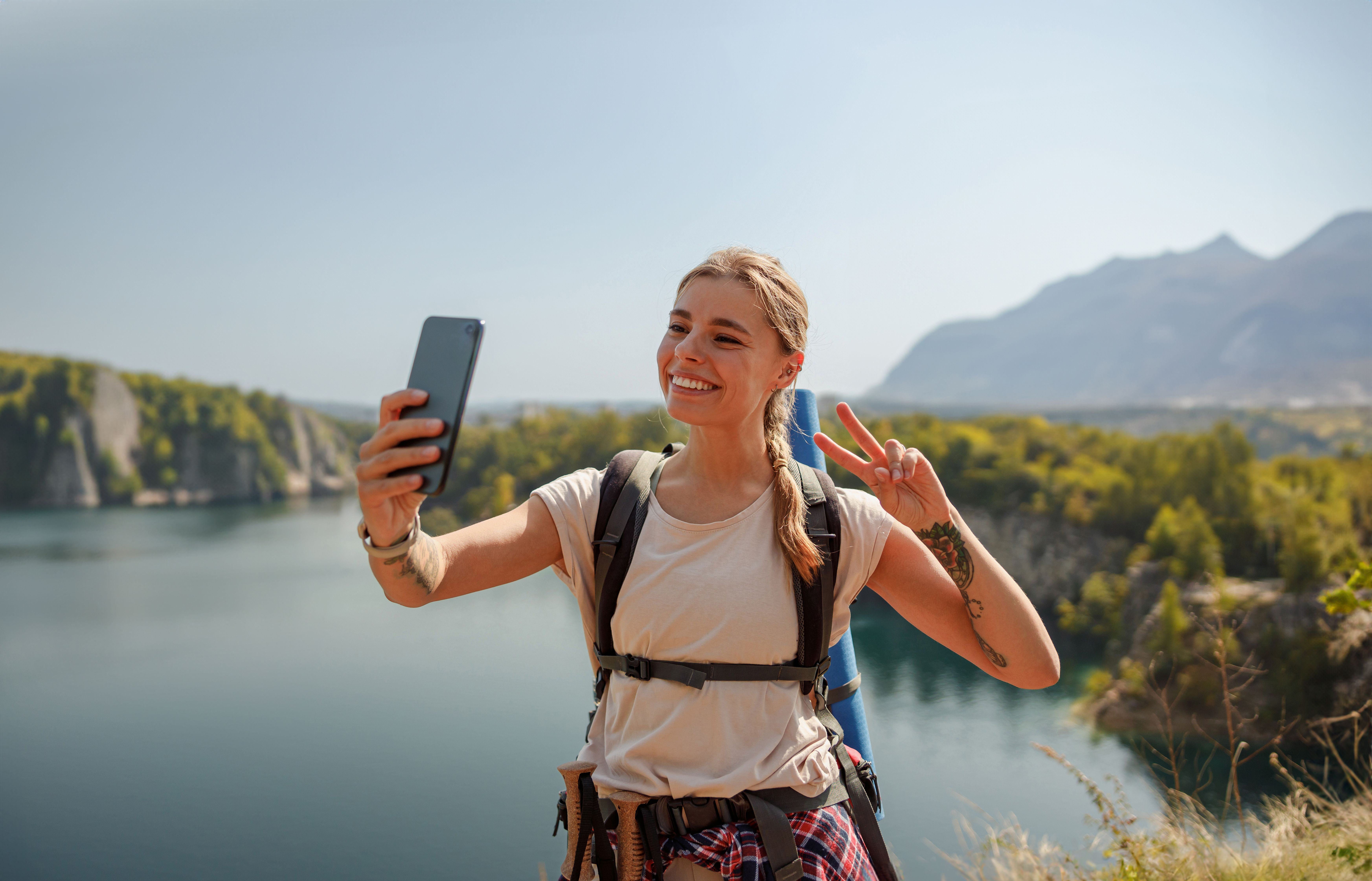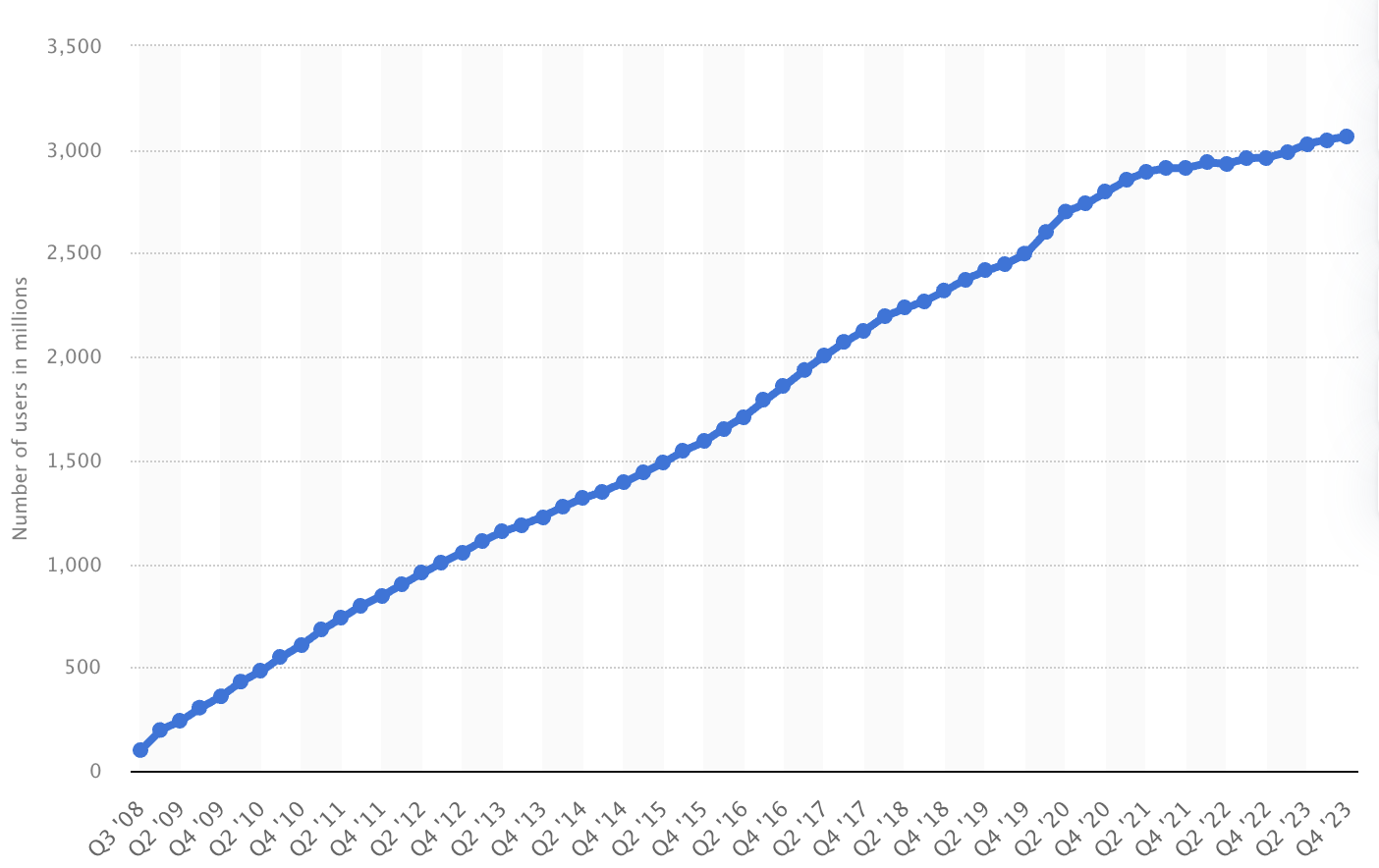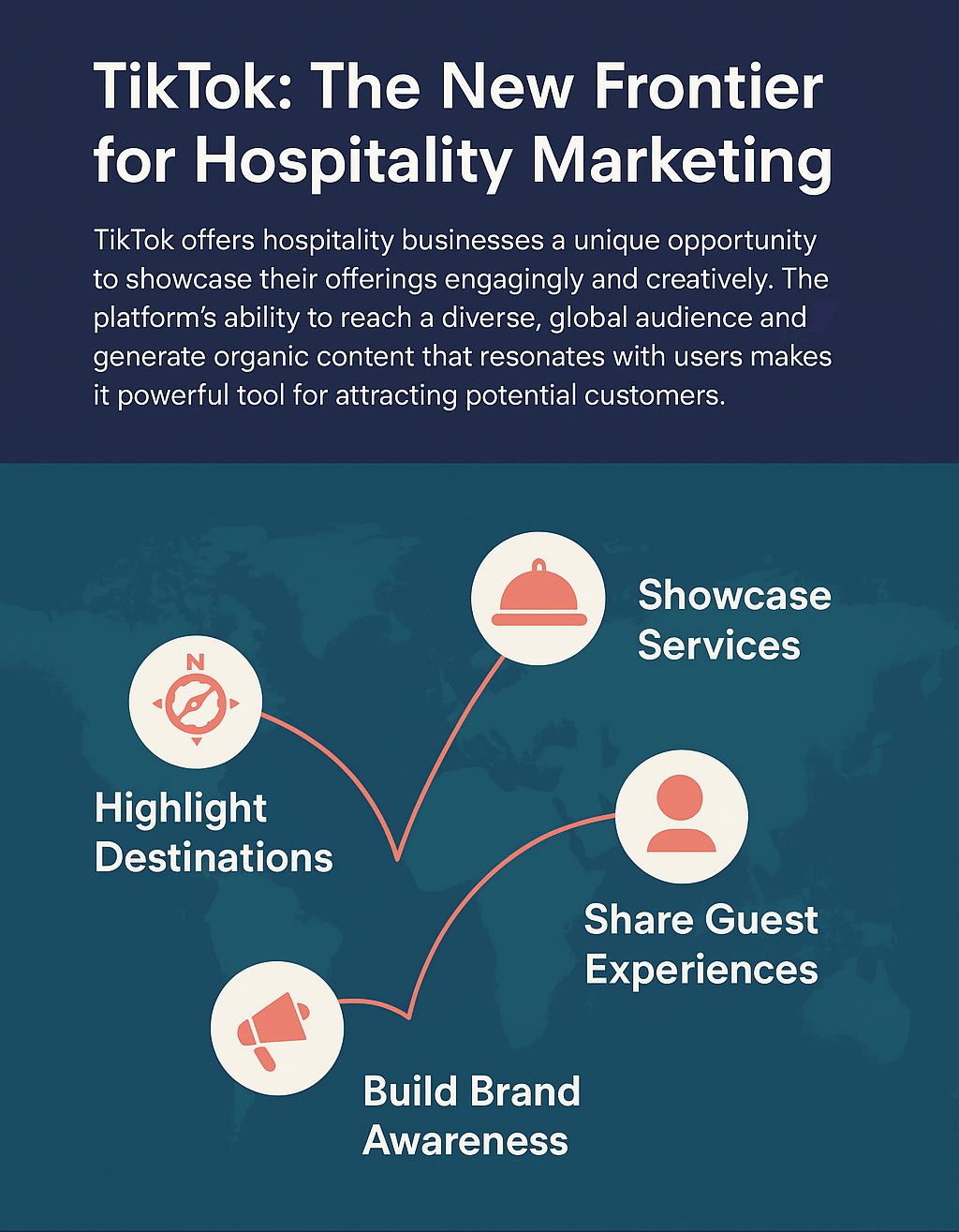Top Platforms for Tourism and Hospitality Marketing: Where to Reach Travelers in Summer of 2025

The tourism and hospitality industry is evolving rapidly, with an increasing reliance on digital platforms to reach travelers; but what are the common platforms used in tourism and hospitality marketing? From social media giants like Instagram and Facebook to third-party platforms such as Booking.com and TripAdvisor, these tools are crucial for connecting with potential guests and travelers. Whether you’re looking to improve your social media strategy or enhance your listings on third-party websites, Pacific54 specializes in helping hospitality brands thrive in the competitive digital landscape. Reach out today to elevate your marketing efforts and grow your business.
The hospitality industry is undergoing rapid digital transformation, with social media emerging as a key tool for connecting with potential customers. The US hospitality market size is projected to reach USD 247.45 billion by 2025, emphasizing the increasing role of digital marketing in a competitive sector. Social media platforms are now essential for engaging with travelers, building relationships, and driving bookings.
For hospitality brands, social media provides an opportunity to target audiences personally. Whether through organic engagement or paid advertising, these platforms enable businesses to connect with potential customers based on:
- Demographics
- Interests
- Behaviors
Instagram, Facebook, and TikTok are among the top platforms where brands can share content highlighting their unique experiences, inspiring travelers to choose their property over competitors. By crafting engaging content, fostering brand loyalty, and utilizing paid ad campaigns, businesses can tap into a wide range of travelers, including:
- Adventure seekers
- Luxury vacationers
E-Commerce for Hospitality on Social Media
The concept of e-commerce extends beyond traditional retail into hospitality marketing. Social media platforms now offer integrated shopping features that allow users to book services or make purchases directly from the platform, streamlining the customer journey. These features enable hospitality brands to target their audiences more effectively by placing booking options directly in front of potential customers during the discovery phase.
For example, Instagram and Facebook allow users to book reservations or view special promotions directly from posts, stories, and ads. By using these platforms’ native booking features, brands can increase conversion rates and drive direct bookings without requiring users to leave the platform. This not only simplifies the booking process but also enhances the customer experience.

Instagram has firmly established itself as one of the most effective social platforms for hospitality marketing, especially for brands that want to showcase their properties, services, and unique experiences. With its focus on visual storytelling, Instagram provides hospitality businesses with a powerful tool to capture the attention of potential customers.
Social media continues to be crucial for many travelers, with 75% using social platforms as a source of inspiration for travel. This highlights the importance of maintaining an active, visually compelling Instagram profile for hospitality brands. Instagram’s features, such as stories, reels, carousel posts, and the explore page, allow businesses to engage with users dynamically and creatively, presenting everything from stunning hotel rooms to local attractions.

Facebook allows hospitality brands to connect with a diverse and vast audience, with roughly three billion monthly active users as of the second quarter of 2023, making it the most used online social network worldwide. With its features like Pages, Groups, Messenger, and Facebook Ads, businesses can foster meaningful relationships with guests, promote their services, and establish brand loyalty. Effective use of Facebook enables hospitality brands to increase their online presence, build trust, and drive customer satisfaction, making it a crucial tool for reaching their target audiences.
Whether through organic posts, paid advertisements, or direct messaging, Facebook allows hospitality brands to create a community around their business. Sharing updates, behind-the-scenes content, special offers, and events helps keep followers engaged and informed. Facebook Groups also provide a more intimate space where businesses can build deeper connections with loyal guests or interested travelers. Engaging with these communities ensures that your brand stays at the top of customers’ minds, fostering long-term relationships and generating word-of-mouth recommendations.
Hospitality Marketing for the Summer
Summer presents a prime opportunity for hospitality brands to ramp up their marketing on Facebook, as travelers are actively looking for vacation destinations. Here’s how you can leverage Facebook for summer marketing:
- Promote special summer packages: Highlight seasonal offers and discounts to attract budget-conscious travelers.
- Showcase summer-themed events: Feature pool parties, outdoor dining, or special holiday celebrations.
- Offer last-minute deals: Target travelers seeking quick getaways with limited-time offers.
This is the perfect time to highlight seasonal amenities like pools, outdoor dining, and family-friendly activities that appeal to travelers planning their summer getaways.
SEO for Hospitality Brands on Facebook
For hospitality brands, Facebook SEO is just as important as SEO on your website. Facebook’s search function and algorithm prioritize relevant, high-quality content, so optimizing your posts can help increase visibility and attract the right target audiences.
Here’s how to optimize your content for better SEO on Facebook:
- Use relevant keywords: Target keywords like “summer getaway,” “family vacation,” or “beachfront hotel” in your posts and ads to ensure your content is discoverable by those actively searching for similar experiences.
- Encourage engagement: The more likes, comments, and shares you get, the higher your posts will rank in Facebook’s algorithm.
TikTok offers hospitality businesses a unique opportunity to connect with a global audience engagingly and creatively. Through short-form videos, brands can showcase their destinations, services, and guest experiences, providing potential travelers with authentic glimpses into what they can expect. This platform’s ability to generate organic, shareable content makes it an invaluable tool for building brand awareness, fostering engagement, and converting views into bookings.

More than 70% of TikTok’s European audience say they’re likely to book a holiday based on recommendations they’ve seen on the platform. This statistic emphasizes the power of TikTok in influencing travel decisions and showcases its potential for hospitality brands to attract bookings directly from the platform.
Digital Marketing in Hospitality Business
Digital marketing is a key element of any successful hospitality strategy, and TikTok is quickly becoming a major player. By embracing platforms like TikTok, hospitality brands can connect with a younger, tech-savvy audience while driving significant engagement. Digital marketing allows for targeted campaigns, enabling brands to reach potential customers based on location, interests, and behavior.
For hospitality brands, using tools like influencer collaborations, content marketing, and social media engagement ensures the right message reaches the right audience. TikTok’s highly engaging format is perfect for promoting hotels, resorts, and vacation destinations. Its user-generated content model also encourages guests to share their experiences, creating authentic, shareable content that amplifies organic reach.
User-generated content (UGC) has become an essential tool in content marketing, particularly for the hospitality industry. By encouraging guests to share their experiences, hospitality brands can build trust, enhance authenticity, and influence potential customers. UGC not only provides real, relatable insights into your property but also plays a vital role in driving bookings. Below is a summary of the key benefits that leveraging UGC can bring to your digital marketing strategies:
Online Travel Agencies (OTAs) like Booking.com, Expedia, and Airbnb are key players in hospitality marketing. These platforms offer brands a valuable opportunity to reach a broader audience, particularly in a competitive market. By listing your property on OTAs, you gain access to millions of potential customers actively seeking travel options, boosting bookings.
Booking Holdings led the market capitalization of OTAs in 2024, ahead of Airbnb and Trip.com Group, highlighting their growing influence. OTAs increase visibility and provide paid placements, ensuring your property appears at the top of search results, which can significantly impact booking decisions. In a crowded marketplace, these paid listings help you stand out and capture more attention.

The digital landscape for hospitality marketing continues to evolve, and leveraging platforms like TikTok, Facebook, Instagram, and Online Travel Agencies (OTAs) is crucial for staying competitive in an increasingly crowded marketplace. By adopting modern digital marketing strategies, hospitality brands can connect with travelers on a more personal and engaging level, ensuring their message reaches the right target audiences. Whether through user-generated content, paid placements, or social media ads, the power of digital marketing cannot be overstated.
We specialize in creating tailored marketing strategies that help hospitality brands grow their online presence, increase bookings, and enhance customer engagement. Want to turn platform views into guest bookings? Let Pacific54 show you how. Reach out today!


